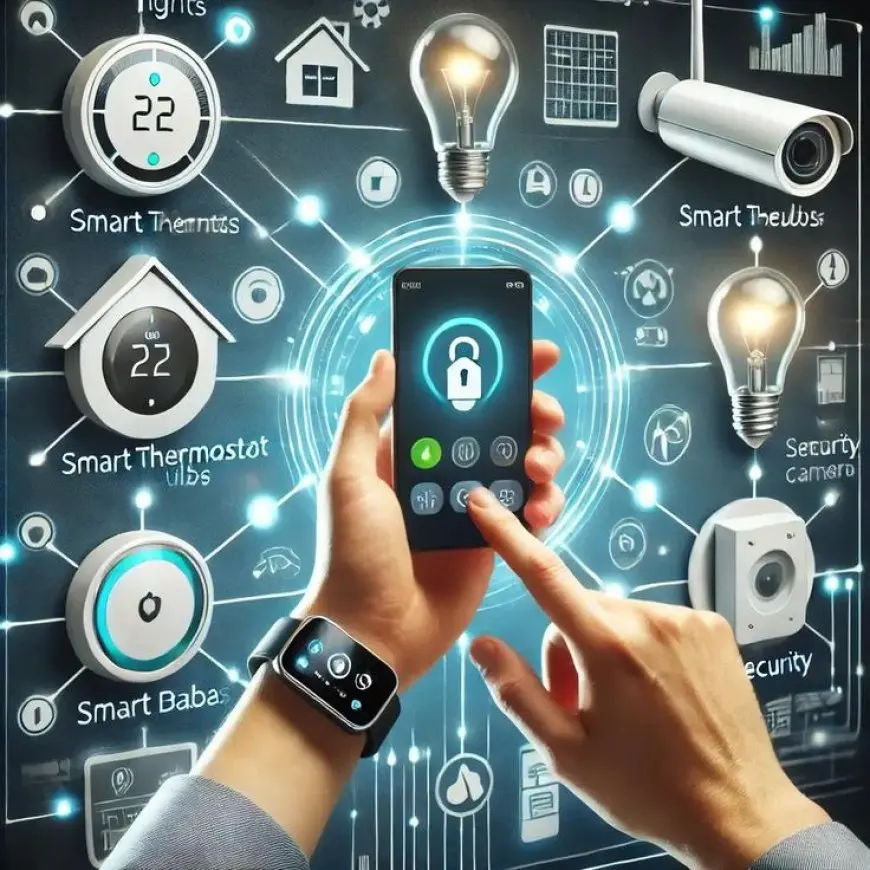"The Internet of Things (IoT) and the Future of Smart Homes"
"The Internet of Things (IoT) and the Future of Smart Homes"

The Internet of Things (IoT) is transforming the concept of home living by connecting devices, appliances, and systems to create an interconnected ecosystem known as the smart home. This technological advancement allows everyday items to communicate with each other and respond to user preferences, making homes more efficient, convenient, and secure.
Smart homes have evolved significantly since the introduction of early automation systems. Today, IoT has enabled a seamless integration of devices that can monitor, control, and optimize various aspects of home life. From lighting and climate control to security and entertainment, smart homes are designed to adapt to the needs and routines of their inhabitants.
One of the key benefits of IoT-enabled smart homes is the improvement in energy efficiency. Smart thermostats, for example, can learn a homeowner's schedule and adjust heating or cooling accordingly, reducing unnecessary energy consumption. Similarly, intelligent lighting systems can automatically switch off lights in unoccupied rooms or adjust brightness based on natural light levels. These innovations not only lower energy bills but also contribute to a more sustainable lifestyle.
Convenience is another defining feature of smart homes. Voice-activated assistants, like virtual AI-powered hubs, allow users to control appliances, manage schedules, and access information with simple voice commands. Automated systems can synchronize household tasks, such as starting the washing machine remotely or preheating the oven before arriving home. These capabilities simplify daily routines and save time for busy homeowners.
Security is a crucial aspect of smart homes, and IoT has brought significant advancements in this area. Smart security cameras, motion detectors, and door locks can be monitored and controlled remotely, giving homeowners peace of mind. Notifications and live video feeds can alert users to any unusual activity, enabling swift responses to potential threats.
Smart homes also enhance the overall living experience through personalization. IoT devices can learn individual preferences over time, tailoring settings for entertainment, lighting, or even meal preparation. This customization creates a living space that feels uniquely attuned to the inhabitants’ needs and tastes.
Despite these benefits, the adoption of IoT in smart homes comes with challenges. Data privacy and cybersecurity are pressing concerns, as connected devices are vulnerable to hacking and data breaches. Addressing these issues requires robust encryption protocols and continuous updates to ensure the safety and privacy of users. Additionally, interoperability among devices from different manufacturers remains a hurdle, highlighting the need for standardized frameworks in the IoT ecosystem.
In conclusion, the Internet of Things is reshaping the future of home living, offering unprecedented levels of comfort, efficiency, and security. As technology continues to evolve, smart homes will become even more intelligent and accessible, creating a lifestyle that seamlessly blends innovation with everyday life. The future of smart homes is not just about connectivity but about creating spaces that anticipate and respond to human needs, making life more enjoyable and sustainable.







